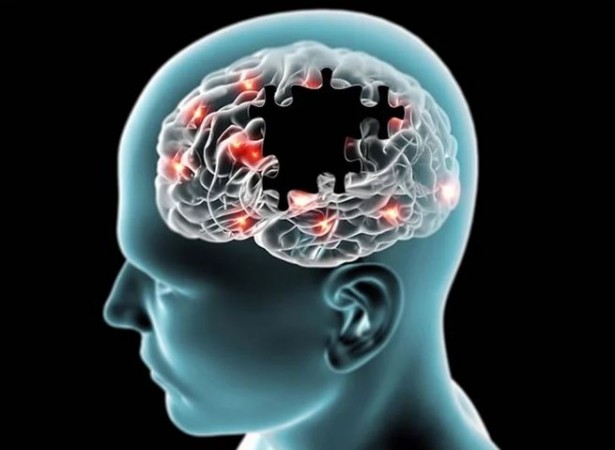
Alzheimer's disease is a common neurological disorder that primarily affects older adults, leading to progressive memory loss and cognitive decline. It is the most prevalent form of dementia, which encompasses a range of conditions characterized by a decline in memory, language, problem-solving, and other cognitive skills that interfere with daily life. In Alzheimer's disease, brain cells gradually degenerate and die, causing a steady decrease in cognitive abilities. Understanding its symptoms and taking preventive measures is essential for managing and potentially delaying the onset of this debilitating condition.
Symptoms of Alzheimer's Disease
1. Memory Loss:
Memory loss is the most prominent early sign of Alzheimer's disease. Individuals often forget recently learned information, important dates, or events. They may repeatedly ask for the same information and increasingly rely on memory aids (such as reminder notes) or family members to handle tasks they used to manage independently.
2. Difficulty in Planning or Solving Problems:
People with Alzheimer's may find it challenging to develop and follow a plan or work with numbers. They might have trouble keeping track of monthly bills, following a recipe, or solving simple problems. This difficulty in planning and problem-solving can lead to frustration and errors in daily activities.
3. Trouble with Familiar Tasks:
Performing routine tasks at home, at work, or during leisure activities can become difficult. Individuals might find it hard to complete daily chores, drive to a familiar location, or remember the rules of a favorite game.
4. Confusion with Time or Place:
People with Alzheimer's can lose track of dates, seasons, and the passage of time. They may forget where they are or how they got there and can become disoriented, even in familiar environments.
5. Difficulty Understanding Visual Images and Spatial Relationships:
For some people, having vision problems is a sign of Alzheimer's. They may have difficulty reading, judging distance, and determining color or contrast, which can cause problems with driving.
6. Problems with Words in Speaking or Writing:
Individuals with Alzheimer's may have trouble following or joining a conversation. They might stop in the middle of a conversation and have no idea how to continue or they may repeat themselves. They may struggle with vocabulary, have trouble naming familiar objects, or use incorrect names (e.g., calling a watch a "hand-clock").
7. Misplacing Things and Losing the Ability to Retrace Steps:
A person with Alzheimer's may put things in unusual places. They might lose items and be unable to go back over their steps to find them again. Sometimes, they may accuse others of stealing, especially as the disease progresses.
8. Decreased or Poor Judgment:
Changes in judgment or decision-making can occur. For instance, individuals might use poor judgment when dealing with money, giving large amounts to telemarketers. They may pay less attention to grooming or keeping themselves clean.
9. Withdrawal from Work or Social Activities:
A person with Alzheimer's may start to remove themselves from hobbies, social activities, work projects, or sports. They may have trouble keeping up with a favorite team or remembering how to complete a favorite hobby. They may also avoid being social because of the changes they have experienced.
10. Changes in Mood and Personality:
The mood and personalities of people with Alzheimer's can change. They can become confused, suspicious, depressed, fearful, or anxious. They may be easily upset at home, with friends, or in places where they are out of their comfort zone.
Preventive Measures for Alzheimer's Disease
While there is no guaranteed way to prevent Alzheimer's, several lifestyle choices can help reduce the risk or delay its onset:
1. Manage Blood Sugar Levels:
For individuals with diabetes, maintaining good blood sugar control is crucial. High blood sugar levels can damage brain cells and increase the risk of developing Alzheimer's.
2. Healthy Diet:
Consuming a balanced diet rich in fruits, vegetables, whole grains, lean proteins, and healthy fats supports brain health. The Mediterranean diet, which emphasizes plant-based foods, fish, and olive oil, is particularly beneficial.
3. Regular Physical Activity:
Engaging in regular physical exercise improves cardiovascular health and increases blood flow to the brain. Activities like walking, swimming, and strength training can help maintain cognitive function.
4. Quit Smoking:
Smoking damages blood vessels and can increase the risk of cognitive decline. Quitting smoking benefits overall health and reduces the risk of Alzheimer's and other diseases.
5. Limit Alcohol Intake:
Excessive alcohol consumption can lead to brain damage and increase the risk of dementia. Drinking in moderation or avoiding alcohol altogether is advisable.
6. Get Adequate Sleep:
Poor sleep quality and sleep disorders are linked to an increased risk of Alzheimer's. Aim for 7-9 hours of good quality sleep each night to support brain health.
7. Stay Mentally Active:
Engaging in activities that challenge the brain, such as reading, puzzles, learning new skills, and social interactions, can help maintain cognitive function.
8. Manage Stress:
Chronic stress can negatively impact the brain. Practices like meditation, yoga, and deep breathing exercises can help manage stress levels.
9. Regular Health Check-ups:
Regular visits to the doctor for health screenings and managing chronic conditions like hypertension and high cholesterol can help reduce the risk of Alzheimer's.
By recognizing the symptoms of Alzheimer's early and adopting preventive measures, individuals can take proactive steps to maintain their cognitive health and improve their overall well-being.
Energy drinks can slowly push you towards death, know its disadvantages otherwise you will regret it
Deadly 'Flesh-Eating Bacteria' Disease Surges in Japan, can kill in just 2 days